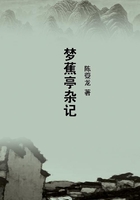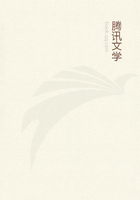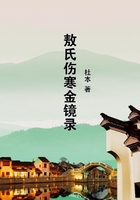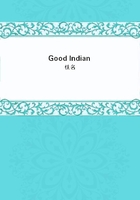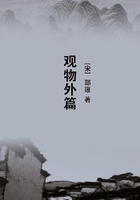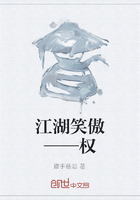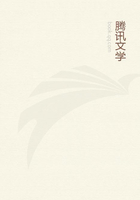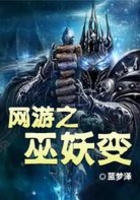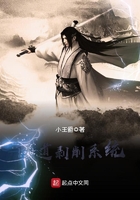right of kings reached its best estate and put on divinity in the stirring times of the Era of State-making; when the princes and prelates "tore each other in the slime." It was of a proprietary nature, a vested interest, something in the nature of intangible assets which embodied the usufruct of the realm, including its population and resources, and which could be turned to account in the pursuit of princely or dynastic advantages at home and abroad. This divine right of princes was disallowed among the more civilised peoples on the transition to modern ways of thinking, and the sovereign rights of the prince were then taken over -- at least in form and principle -- by the people at large, and they have continued to be held by them as some sort of imponderable "community property," -- at least in point of form and profession. The vested interest of the prince or the dynasty in the usufruct of the underlying community is thereby presumed to have become a collective interest vested in the people of the nations and giving them a "right of user" in their own persons, knowledge, skill and resources.
The mantle of princely sovereignty has fallen on the common man -- formally and according to the letter of the legal instruments. In practical effect, as "democratic sovereignty" it has been converted into a cloak to cover the nakedness of a government which does business for the kept classes. In practical effect, the shift from the dynastic politics of the era of state-making to the Liberal policies based on the enlightened principles of the eighteenth century has been a shift from the pursuit of princely dominion to an imperialistic enterprise for the protection and furtherance of those vested interests that are domiciled within the national frontiers. That such has been the practical outcome is due to the fact that these enlightened principles of the eighteenth century comprise as their chief article the "natural" right of ownership. The later course of events has decided that the ownership of property in sufficiently large blocks will control the country's industrial system and thereby take over the disposal of the community's net output of product over cost; on which the vested interests live and on which, therefore, the kept classes feed. Hence the chief concern of those gentlemanly national governments that have displaced the dynastic states is always and consistently the maintenance of the rights of ownership and investment.
However, these pecuniary interests of investment and free income are not all that is covered by the mantle of democratic sovereignty. Nor will it hold true that the common man has no share in the legacy of sovereignty and national enterprise which the enlightened democratic commonwealth has taken over from the departed dynastic r間ime. The divine right of the prince included certain imponderables, as well as the usufruct of the material resources of the realm. There were the princely dignity and honor, which were no less substantial an object of value and ambition and were no less tenaciously held by the princes of the dynastic r間ime than the revenues and material "sinews of war" on which the prestige and honor rested. And the common man of the democratic commonwealth has at least come in for a ratable share in these imponderables of prestige and honor that so are comprised under the divine right of the nation. He has an undivided interest in the glamour of national achievement, and he can swell with just pride in contemplating the triumphs of his gentlemanly government over the vested interests domiciled in any foreign land, or with just indignation at any diplomatic setback suffered by the vested interests domiciled in his own.
There is also a more tangible, though more petty, advantage gained for the common man in having formally taken over the sovereignty from the dead hand of the dynastic prince. The common man being now vested with the divine right of national sovereignty, held in undivided community ownership, it is ceremonially necessary for the gentlemanly stewards of the kept classes to consult the wishes of this their sovereign on any matters of policy that can not wholly be carried through in a diplomatic corner and under cover of night and cloud. He, collectively, holds an eventual power of veto. And this power of veto has in practice been found to be something of a safeguard against any universal and enduring increase of hardship at the hands of the gentlemen-investors to whom the conduct of the nation's affairs has been "entrusted;" a very modest safeguard, it is true, but always of some eventual consequence. There is the difference that in the democratic commonwealth the common man has to be managed rather than driven, -- except for minor groups of common men who live on the lower-common levels, and except for recurrent periods of legislative hysteria and judiciary blind-staggers. And it is pleasanter to be managed than to be driven. Chicane is a more humane art than corporal punishment.
Imperial England is, after all, a milder-mannered stepmother than Imperial Germany.
And always the common man comes in for his ratable share in the glamour of national achievement, in war and peace; and this imponderable gain of the spirit is also something. The value of these collective imponderables of national prestige and collective honor is not to be made light of. These count for very much in the drift and set of national sentiment, and moral issues of national moment are wont to arise out of them. Indeed, they constitute the chief incentive which holds the common man to an unrepining constancy in the service of the "national interests,"
So that, while the tangible shell of material gain appears to have fallen to the democratic community's kept classes, yet the "psychic income" that springs from national enterprise, the spiritual kernel of national elation they share with the common man on an equitable footing of community interest.

